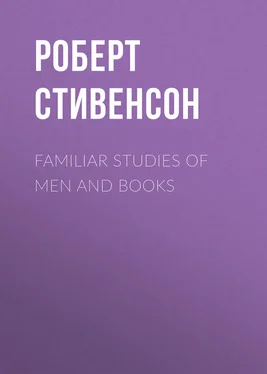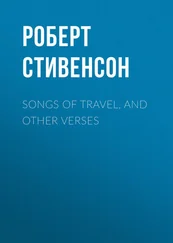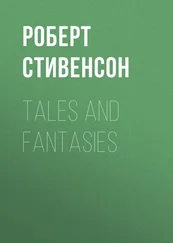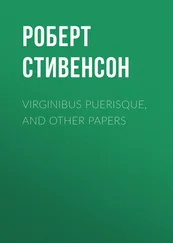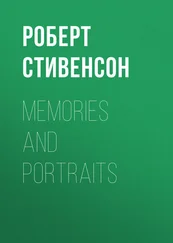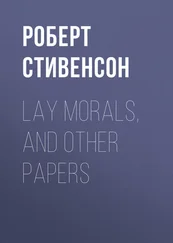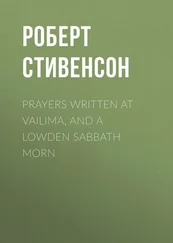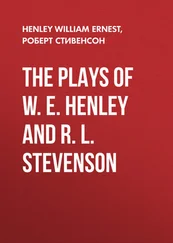Роберт Стивенсон - Familiar Studies of Men and Books
Здесь есть возможность читать онлайн «Роберт Стивенсон - Familiar Studies of Men and Books» — ознакомительный отрывок электронной книги совершенно бесплатно, а после прочтения отрывка купить полную версию. В некоторых случаях можно слушать аудио, скачать через торрент в формате fb2 и присутствует краткое содержание. Жанр: foreign_home, literature_19, на английском языке. Описание произведения, (предисловие) а так же отзывы посетителей доступны на портале библиотеки ЛибКат.
- Название:Familiar Studies of Men and Books
- Автор:
- Жанр:
- Год:неизвестен
- ISBN:нет данных
- Рейтинг книги:3 / 5. Голосов: 1
-
Избранное:Добавить в избранное
- Отзывы:
-
Ваша оценка:
- 60
- 1
- 2
- 3
- 4
- 5
Familiar Studies of Men and Books: краткое содержание, описание и аннотация
Предлагаем к чтению аннотацию, описание, краткое содержание или предисловие (зависит от того, что написал сам автор книги «Familiar Studies of Men and Books»). Если вы не нашли необходимую информацию о книге — напишите в комментариях, мы постараемся отыскать её.
Familiar Studies of Men and Books — читать онлайн ознакомительный отрывок
Ниже представлен текст книги, разбитый по страницам. Система сохранения места последней прочитанной страницы, позволяет с удобством читать онлайн бесплатно книгу «Familiar Studies of Men and Books», без необходимости каждый раз заново искать на чём Вы остановились. Поставьте закладку, и сможете в любой момент перейти на страницу, на которой закончили чтение.
Интервал:
Закладка:
Of the Pepys I can say nothing; for it has been too recently through my hands; and I still retain some of the heat of composition. Yet it may serve as a text for the last remark I have to offer. To Pepys I think I have been amply just; to the others, to Burns, Thoreau, Whitman, Charles of Orleans, even Villon, I have found myself in the retrospect ever too grudging of praise, ever too disrespectful in manner. It is not easy to see why I should have been most liberal to the man of least pretensions. Perhaps some cowardice withheld me from the proper warmth of tone; perhaps it is easier to be just to those nearer us in rank of mind. Such at least is the fact, which other critics may explain. For these were all men whom, for one reason or another, I loved; or when I did not love the men, my love was the greater to their books. I had read them and lived with them; for months they were continually in my thoughts; I seemed to rejoice in their joys and to sorrow with them in their griefs; and behold, when I came to write of them, my tone was sometimes hardly courteous and seldom wholly just.
R. L. S.VICTOR HUGO’S ROMANCES
Après le roman pittoresque mais prosaïque de Walter Scott il restera un autre roman à créer, plus beau et plus complet encore selon nous. C’est le roman, à la fois drame et épopée, pittoresque mais poétique, réel mais idéal, vrai mais grand, qui enchâssera Walter Scott dans Homère. – Victor Hugo on Quentin Durward .
Victor Hugo’s romances occupy an important position in the history of literature; many innovations, timidly made elsewhere, have in them been carried boldly out to their last consequences; much that was indefinite in literary tendencies has attained to definite maturity; many things have come to a point and been distinguished one from the other; and it is only in the last romance of all, Quatre Vingt Treize , that this culmination is most perfect. This is in the nature of things. Men who are in any way typical of a stage of progress may be compared more justly to the hand upon the dial of the clock, which continues to advance as it indicates, than to the stationary milestone, which is only the measure of what is past. The movement is not arrested. That significant something by which the work of such a man differs from that of his predecessors, goes on disengaging itself and becoming more and more articulate and cognisable. The same principle of growth that carried his first book beyond the books of previous writers, carries his last book beyond his first. And just as the most imbecile production of any literary age gives us sometimes the very clue to comprehension we have sought long and vainly in contemporary masterpieces, so it may be the very weakest of an author’s books that, coming in the sequel of many others, enables us at last to get hold of what underlies the whole of them – of that spinal marrow of significance that unites the work of his life into something organic and rational. This is what has been done by Quatre Vingt Treize for the earlier romances of Victor Hugo, and, through them, for a whole division of modern literature. We have here the legitimate continuation of a long and living literary tradition; and hence, so far, its explanation. When many lines diverge from each other in direction so slightly as to confuse the eye, we know that we have only to produce them to make the chaos plain: this is continually so in literary history; and we shall best understand the importance of Victor Hugo’s romances if we think of them as some such prolongation of one of the main lines of literary tendency.
When we compare the novels of Walter Scott with those of the man of genius who preceded him, and whom he delighted to honour as a master in the art – I mean Henry Fielding – we shall be somewhat puzzled, at the first moment, to state the difference that there is between these two. Fielding has as much human science; has a far firmer hold upon the tiller of his story; has a keen sense of character, which he draws (and Scott often does so too) in a rather abstract and academical manner; and finally, is quite as humorous and quite as good-humoured as the great Scotchman. With all these points of resemblance between the men, it is astonishing that their work should be so different. The fact is, that the English novel was looking one way and seeking one set of effects in the hands of Fielding; and in the hands of Scott it was looking eagerly in all ways and searching for all the effects that by any possibility it could utilise. The difference between these two men marks a great enfranchisement. With Scott the Romantic movement, the movement of an extended curiosity and an enfranchised imagination, has begun. This is a trite thing to say; but trite things are often very indefinitely comprehended: and this enfranchisement, in as far as it regards the technical change that came over modern prose romance, has never perhaps been explained with any clearness.
To do so, it will be necessary roughly to compare the two sets of conventions upon which plays and romances are respectively based. The purposes of these two arts are so much alike, and they deal so much with the same passions and interests, that we are apt to forget the fundamental opposition of their methods. And yet such a fundamental opposition exists. In the drama the action is developed in great measure by means of things that remain outside of the art; by means of real things, that is, and not artistic conventions for things. This is a sort of realism that is not to be confounded with that realism in painting of which we hear so much. The realism in painting is a thing of purposes; this, that we have to indicate in the drama, is an affair of method. We have heard a story, indeed, of a painter in France who, when he wanted to paint a sea-beach, carried realism from his ends to his means, and plastered real sand upon his canvas; and that is precisely what is done in the drama. The dramatic author has to paint his beaches with real sand: real live men and women move about the stage; we hear real voices; what is feigned merely puts a sense upon what is; we do actually see a woman go behind a screen as Lady Teazle, and, after a certain interval, we do actually see her very shamefully produced again. Now all these things, that remain as they were in life, and are not transmuted into any artistic convention, are terribly stubborn and difficult to deal with; and hence there are for the dramatist many resultant limitations in time and space. These limitations in some sort approximate towards those of painting: the dramatic author is tied down, not indeed to a moment, but to the duration of each scene or act; he is confined to the stage, almost as the painter is confined within his frame. But the great restriction is this, that a dramatic author must deal with his actors, and with his actors alone. Certain moments of suspense, certain significant dispositions of personages, a certain logical growth of emotion, these are the only means at the disposal of the playwright. It is true that, with the assistance of the scene-painter, the costumier and the conductor of the orchestra, he may add to this something of pageant, something of sound and fury; but these are, for the dramatic writer, beside the mark, and do not come under the vivifying touch of his genius. When we turn to romance, we find this no longer. Here nothing is reproduced to our senses directly. Not only the main conception of the work, but the scenery, the appliances, the mechanism by which this conception is brought home to us, have been put through the crucible of another man’s mind, and come out again, one and all, in the form of written words. With the loss of every degree of such realism as we have described, there is for art a clear gain of liberty and largeness of competence. Thus, painting, in which the round outlines of things are thrown on to a flat board, is far more free than sculpture, in which their solidity is preserved. It is by giving up these identities that art gains true strength. And so in the case of novels as compared with the stage. Continuous narration is the flat board on to which the novelist throws everything. And from this there results for him a great loss of vividness, but a great compensating gain in his power over the subject; so that he can now subordinate one thing to another in importance, and introduce all manner of very subtle detail, to a degree that was before impossible. He can render just as easily the flourish of trumpets before a victorious emperor and the gossip of country market women, the gradual decay of forty years of a man’s life and the gesture of a passionate moment. He finds himself equally unable, if he looks at it from one point of view – equally able, if he looks at it from another point of view – to reproduce a colour, a sound, an outline, a logical argument, a physical action. He can show his readers, behind and around the personages that for the moment occupy the foreground of his story, the continual suggestion of the landscape; the turn of the weather that will turn with it men’s lives and fortunes, dimly foreshadowed on the horizon; the fatality of distant events, the stream of national tendency, the salient framework of causation. And all this thrown upon the flat board – all this entering, naturally and smoothly, into the texture of continuous intelligent narration.
Читать дальшеИнтервал:
Закладка:
Похожие книги на «Familiar Studies of Men and Books»
Представляем Вашему вниманию похожие книги на «Familiar Studies of Men and Books» списком для выбора. Мы отобрали схожую по названию и смыслу литературу в надежде предоставить читателям больше вариантов отыскать новые, интересные, ещё непрочитанные произведения.
Обсуждение, отзывы о книге «Familiar Studies of Men and Books» и просто собственные мнения читателей. Оставьте ваши комментарии, напишите, что Вы думаете о произведении, его смысле или главных героях. Укажите что конкретно понравилось, а что нет, и почему Вы так считаете.
